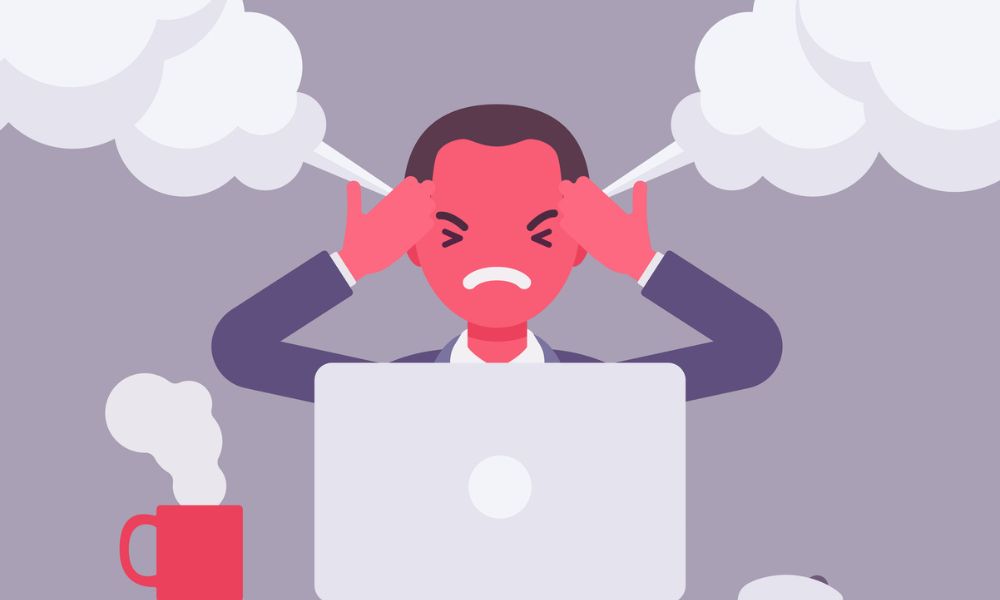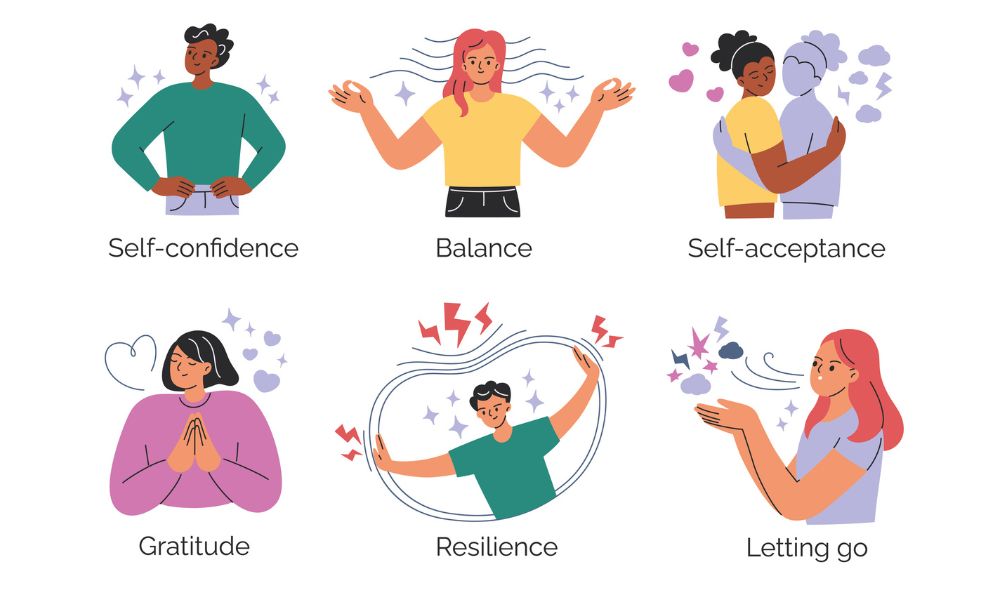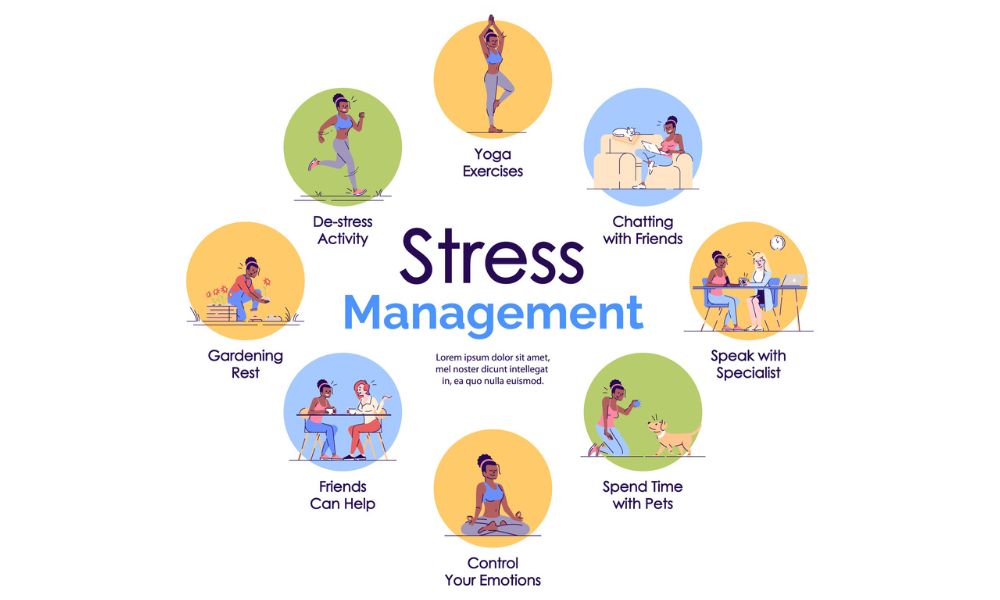Many of us experience anger from time to time, but the key lies in recognising when that anger becomes too intense or frequent to handle alone. If our anger feels overwhelming or leads to negative consequences in our lives, it may be time to seek professional help. Understanding our own emotions gives us a clearer picture of when we need assistance.

In this article, we will explore practical steps for assessing our anger and identifying when it’s beneficial to consult a professional. We’ll discuss the signs that suggest it’s time to seek help and what we can expect from anger management therapy. By shedding light on these aspects, we aim to empower readers to take control of their emotional wellbeing.
Key Takeaways
- Recognising the signs of problematic anger is crucial for seeking help.
- Professional guidance can provide effective strategies for managing anger.
- Taking the first step towards therapy can lead to healthier relationships and improved emotional health.
Understanding Anger

Anger is a powerful emotion that affects our lives in many ways. We experience it as a response to stress, frustration, or perceived threats. It is essential to recognise the nature and causes of this feeling to manage it effectively.
The Nature and Causes of Anger
Anger can arise from various factors. Stressful situations, unresolved frustrations, or feeling threatened can trigger this intense emotional state.
Common Causes of Anger:
- Stress: Daily pressures from work or personal life can accumulate, leading to heightened anger.
- Frustration: When obstacles prevent us from reaching our goals, frustration can turn into anger.
- Perceived Threats: Feeling attacked emotionally or physically can provoke strong reactions.
While anger is a natural response, it becomes a problem when we let it control our behaviour. Identifying these triggers is the first step in managing our anger more effectively.
Recognising Anger Problems
Recognising when our anger is problematic is crucial for our mental health. We may notice increased anger in certain situations or our reactions becoming more intense.
Signs of Anger Problems:
- Frequent irritability or rage over minor issues.
- Difficulty expressing anger appropriately.
- Feelings of guilt or shame after angry outbursts.
These signs indicate that we may need to explore healthier ways of expressing our anger. It’s essential to seek help if we experience these challenges, as support can guide us in finding better coping strategies. Understanding our anger issues allows us to take control and promote our emotional well-being.
Self-Assessment of Anger

Understanding our anger is a crucial step in managing it effectively. By identifying what triggers our anger and evaluating how often and intensely we experience it, we can take meaningful steps towards improvement.
Identifying Triggers
To manage our anger, we first need to pinpoint what sets it off. Triggers can be anything from specific situations, comments, or even stress. By keeping a journal, we can track these moments.
Consider the following:
- Situational Triggers: What environments ignite our anger? Is it traffic, long queues, or noisy settings?
- Emotional Triggers: Do we react strongly when feeling stressed, anxious, or overwhelmed?
Recognising these patterns can highlight the root causes of our anger problems. This self-awareness enables us to prepare for these situations or change our responses, helping us to better deal with our anger.
Evaluating Anger Frequency and Intensity
Next, we should assess how often we feel angry and the intensity of that anger. Are we angry multiple times a week, daily, or only on rare occasions? Understanding frequency helps us gauge whether our emotional state needs attention.
Ask ourselves:
- Intensity Level: When we feel angry, how intense is that feeling? Does it last minutes, hours, or longer?
- Impact on Relationships: How does our anger affect those around us? Do we notice changes in our relationships due to our reactions?
By evaluating these aspects, we can better understand if our anger responses are disproportionate, indicating it might be time to seek professional help.
Managing Anger Independently

We can take proactive steps to manage our anger effectively without seeking immediate professional help. By incorporating relaxation techniques and improving our communication skills, we can better control our emotions and respond to challenging situations more calmly.
Relaxation Techniques and Exercises
Practising relaxation techniques can significantly help us manage anger. One effective method is deep breathing. We can take slow, deep breaths, inhaling through our nose and exhaling through our mouth. This helps calm our nervous system.
Another technique is meditation. Setting aside just a few minutes each day to focus on our breath or engage in mindfulness can reduce stress and improve our emotional well-being. Activities like yoga combine physical movement with breath control, which benefits our mood and enhances our ability to cope with anger.
Moreover, we can try progressive muscle relaxation. This involves tensing and then relaxing each muscle group, which helps identify and release tension. Regular use of these techniques can empower us to respond to anger more constructively.
Developing Communication Skills
Improving our communication skills can greatly aid in managing anger. When we feel upset, it's crucial to express our feelings clearly and calmly. Using "I" statements, like "I feel frustrated when..." helps us share our thoughts without placing blame.
Active listening is also vital. We should make an effort to understand the other person’s perspective. This can help reduce misunderstandings that often lead to anger. Practising patience and taking a moment to reflect before reacting can improve our responses in heated situations.
Role-playing scenarios with friends or family can enhance our communication skills as well. This can prepare us for real-life conversations that may trigger anger. By focusing on how we communicate, we can navigate conflicts more effectively and maintain healthier relationships.
When to Seek Professional Help

Recognising when to seek professional help for anger management can be challenging. We need to be aware of specific signs that indicate a need for intervention. Understanding these signals will help us make informed choices about our mental health and well-being.
Warning Signs and Triggers
We should pay attention to certain warning signs that may indicate our anger is becoming a problem. If we find ourselves feeling angry frequently or experiencing intense rage, it’s a signal we should not ignore.
Common triggers could include stressful situations, specific people, or past experiences. If we notice that certain events consistently lead to outbursts, it might be helpful to jot these down.
Feeling shame or guilt after an angry episode can also indicate we need help. If our anger leads to aggression towards others or ourselves, such as verbal abuse or physical harm, professional support is crucial. Seeking help can provide us with tools to manage our feelings better.
Distinguishing Between Normal and Problematic Anger
It’s necessary to differentiate between normal anger and problematic anger. We all experience anger as a natural emotion, especially in stressful situations. This type of anger is generally manageable and doesn’t harm those around us.
Problematic anger, on the other hand, disrupts our daily lives. If we find that our anger affects relationships, work, or leads to isolation, it’s time to reflect on our emotions. Indications of mental illness, such as anxiety or depression, can also exacerbate our feelings of anger.
Recognising these distinctions can empower us to take action. If we frequently lose control or feel overwhelmed by our emotions, reaching out for professional help becomes essential. Addressing these behaviours early can help prevent deeper issues like physical abuse or chronic aggression.
Understanding Professional Anger Management
When we consider professional anger management, we find various therapeutic approaches and interventions designed to help individuals manage their anger effectively. Understanding these options can empower us to make informed choices about seeking help.
Exploring Different Types of Therapy
In our journey towards managing anger, we can explore different types of therapy. Common options include cognitive-behavioural therapy (CBT), which focuses on identifying and changing negative thought patterns. This helps us understand what triggers our anger.
Another beneficial approach is anger management therapy. This therapy specifically targets anger issues, teaching practical skills to control our responses. Techniques often include relaxation exercises, communication skills, and strategies for problem-solving.
Counselling is also valuable for individuals struggling with underlying mental health problems that could exacerbate anger. By talking with a trained therapist, we can gain insights into our emotions, allowing us to address the root causes of our anger.
Benefits of Professional Interventions
Engaging in professional interventions for anger can lead to significant improvements in our lives. One benefit is learning effective coping strategies. These skills help us react to anger-inducing situations without resorting to aggression.
Additionally, therapy provides a safe space for us to express our feelings. This can reduce feelings of isolation that often accompany anger issues. By discussing our thoughts with a professional, we can gain perspective and clarity.
Professional help can also strengthen our relationships. Learning to manage anger means we communicate more openly and constructively. As a result, our personal and professional interactions can improve, fostering healthier connections with others.
Alternative and Complementary Therapies
We can explore various alternative and complementary therapies that may help manage anger. These approaches often focus on mindfulness and self-care, which are essential for our mental health. They can complement traditional treatment methods and provide valuable tools for coping with anger.
Mindfulness Techniques
Mindfulness techniques help us stay present and aware of our thoughts and feelings. Practicing mindfulness can significantly reduce stress and improve our emotional regulation.
One effective method is meditation, where we can dedicate a few minutes each day to sit quietly and focus on our breath. We might notice how our anger feels in our body without judgment. This awareness can often lessen the intensity of our anger.
Self-hypnosis is another technique we can use. It allows us to enter a relaxed state and focus on positive suggestions. This process can help us reshape our responses to anger triggers.
Incorporating these mindfulness techniques into our daily routine can be a powerful way to manage our emotions more effectively.
Lifestyle Changes and Self-Care
Making small lifestyle changes can also have a significant impact on how we manage anger. One important aspect is regular exercise. Physical activity releases endorphins, which can improve our mood and reduce stress.
Additionally, we should pay attention to our diet. Eating balanced meals and staying hydrated can affect our mental clarity and emotional balance. Nutrient-rich foods, such as fruits, vegetables, and whole grains, can support our overall mental health.
Practising good self-care is crucial. We can set aside time for hobbies, relaxation, and socialising. Connecting with friends and family strengthens our support networks and enhances our resilience to stress.
By making these changes, we can create a healthier lifestyle that better supports our emotional wellbeing and helps manage anger.
Implementing Learned Strategies
In this section, we explore how to effectively integrate anger management techniques into our daily lives and the importance of ongoing monitoring and adjustment. Adopting these strategies can lead to healthier emotional responses and clearer communication.
Incorporating Techniques into Daily Routine
To manage anger successfully, we must incorporate learned strategies into our daily existence. A simple way to start is by setting aside a few minutes each day for relaxation techniques. Practices like deep breathing or mindfulness can help ground us during stressful moments.
We can also establish triggers for using these techniques. For example, if we feel tension building, we could take a break and practice a quick relaxation exercise. Writing down our emotions can provide valuable insights and allow us to respond rather than react impulsively.
Furthermore, we should focus on enhancing our communication skills. Calmly expressing our feelings can reduce misunderstandings and prevent unnecessary conflicts. Setting aside time to discuss our feelings with trusted friends or family members can also help build our support network.
Monitoring Progress and Adjustment
Monitoring our progress is crucial in the journey of anger management. We can maintain a journal to track our emotions and reactions. This practice helps us identify patterns that may trigger anger. Recognising these patterns allows us to adjust our strategies effectively.
We should also be open to revising our techniques. If a particular strategy isn't working, we can explore alternative approaches, such as seeking feedback from those around us. Regular check-ins with ourselves can help us assess whether we feel more in control of our anger.
Finally, seeking professional guidance may be beneficial if we find ourselves struggling despite our efforts. Anger management courses or therapy can offer additional tools and support.
Moving Forward After Therapy
After completing therapy for anger management, we need to focus on how to apply what we've learned. This step is crucial for maintaining progress and improving our mental health.
1. Reflect on Progress
We should take time to think about our journey. Recognising the improvements we’ve made helps boost our confidence. Keeping a journal can be beneficial.
2. Practice New Skills
Using techniques from therapy in our daily life is key. This may include deep breathing, mindfulness, or identifying triggers. Practicing these skills can help us manage anger effectively.
3. Communication
Clear and open communication is essential in our relationships. We should share our feelings with loved ones. This helps avoid misunderstandings and builds stronger connections.
4. Set Goals
Establishing realistic goals can guide us in our journey. We might set short-term goals, like practising anger techniques once daily, and long-term goals for personal growth.
5. Seek Support
Maintaining connections with support networks is important. We can reach out to therapists or join support groups.
6. Recognise Warning Signs
Being aware of signs that anger is rising again helps us take action early. This could include feeling irritable or tense.
By focusing on these steps, we can continue to grow and manage our anger positively.
Frequently Asked Questions
When dealing with anger management, it's important to recognise the signs and develop effective strategies. We can explore various ways to understand anger, how to manage it, and when seeking help is necessary.
What signs indicate that one should consider professional assistance for anger management?
We should consider seeking professional help when anger starts to impact our daily lives. Signs include frequent outbursts, feelings of helplessness, or struggling to control our reactions. If anger leads to damaged relationships or affects work, it’s a clear signal to reach out for support.
What are effective strategies to manage anger instantaneously?
We can use several immediate strategies to manage anger effectively. Deep breathing techniques help calm our body and mind. Counting to ten before reacting can also provide a moment to think. Physical activities, like going for a walk, allow us to release pent-up energy.
Can one access complimentary anger management courses through the NHS?
Yes, the NHS offers resources for anger management. We can find self-help guides and courses that equip us with tools to manage anger better. These resources are often designed for easy access, making it simpler for us to seek help when needed.
How should one address anger within interpersonal relationships?
When addressing anger in relationships, open communication is key. We should express our feelings without blaming others. Using “I” statements helps us to share our experiences while reducing defensiveness. Listening to the other person’s point of view also fosters a healthier dialogue.
At what point does anger become a symptom of a mental health condition?
Anger may indicate a mental health condition when it becomes frequent or intense. If we find ourselves feeling angry without clear triggers or our reactions are disproportionate, it might signal an underlying issue. Conditions such as anxiety or depression can manifest through excessive anger.
How can teenagers effectively regulate their feelings of anger?
Teenagers can manage anger by practising mindfulness and self-reflection. Activities like journaling help them understand their emotions better. Encouraging open conversations with trusted adults can also provide the support they need to express feelings healthily.





















